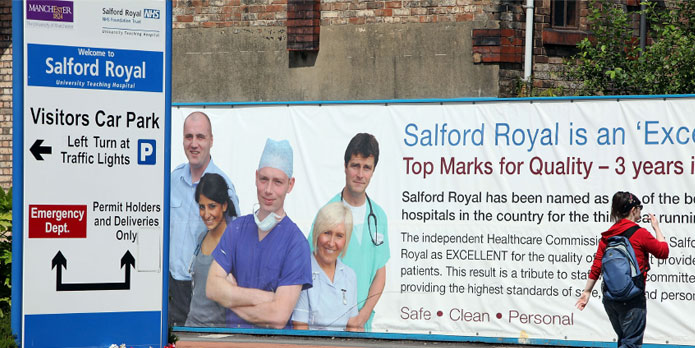
Manchester is the blueprint for the next generation of healthcare
Our healthcare communications specialists look at how the next few years could be a watershed period for devolved cities providing changing healthcare services in the UK…
When the National Health Service was founded, the standardisation of provision rested upon the centralisation of executive power. Lloyd George’s National Insurance Act of 1911 had offered rudimental healthcare to all contributors though left the unwaged, typically women and those too young to work, at the mercy of external support or the care offered by local authorities.
The dispersed and divided nature of healthcare under local authorities had resulted in high infant mortality rates, rampant disease and a system of unequal treatment largely dependent upon geographical location.
Today the government’s drive towards devolution, seen most clearly in the £6 billion project to deliver greater powers to Manchester, provides an opportunity to better integrate and prioritise local services for treating health issues that are increasingly recognised as beyond the formal structures of the NHS.
The Greater Manchester Combined Authority, the to-be beneficiary of these conferred powers, argue two thirds of early deaths in Greater Manchester are caused by behaviours that can be changed. Societal issues such as housing, parenting, employment and education can all contribute to the health burden. Having the ability to address these contributory factors with greater local power can help to tackle problems formed in the community.
‘Devo health’ makes perfect sense in order to allow a region more flexibility and power when dealing with issues beyond the scope of traditional NHS services, but which nevertheless contribute to acute pressures. An NHS which was created to standardise through universality will now disperse so that it may adequately deal with different communities facing different problems.
A succession of Labour MPs, however, have expressed their concerns with what Andy Burnham, former health secretary, called a ‘Swiss-cheese NHS’, where different rules and freedoms operate concurrently. Most recently Debbie Abrahams, MP for Oldham East and Saddleworth and a fellow of the Faculty of Public Health, raised concerns that what the plan represented was not devolution of healthcare but the delegation of central government spending cuts. She has called for an independent impact assessment for a deal which she says lacks transparency.
Scotland and Wales already have devolved powers over health spending and parliaments accountable to the public when decisions are taken. In Manchester accountability seems more obscure, with the elected leaders of 10 councils, in partnership with Clinical Commissioning Groups, having overall control of the budget. Throw into the mix the elections due to take place in 2017 so that residents can directly elect a ‘metro mayor’, and the picture becomes even more complicated. It remains to be seen whether proper accountability will lie in Manchester, or whether the health secretary will inevitably remain responsible given the invested powers of his position.
Back in February 2015 nobody had expected the chancellor to announce devolution of this scale within healthcare. Although it will have to surmount difficult challenges; a predominantly Labour city navigating the spending cuts imposed by central government, and an accountability issue making both transparency and responsibility complicated, devolution when done right may address local issues better than standardisation. If Manchester is to be the blueprint for healthcare devolution, it is a programme that will have to be specially tended to. Its success could impact the future of service provision in the NHS.
Freshwater’s healthcare team has significant experience of working with health and social care organisations and NHS trusts, offering services from integrated communications to crisis management, as well as delivering events and training.
